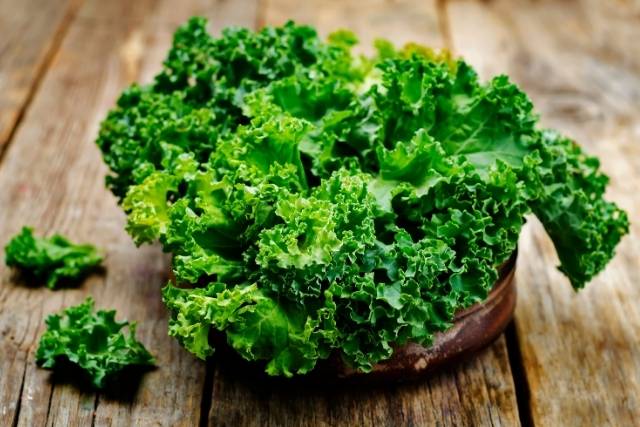Recent Posts
-

- Diabetes-Friendly Nutrition: Smart... 08.12.2024
-

- Nutrition for Chronic... 08.12.2024
-

- Anti-Inflammatory Diet: Food... 08.12.2024
-

- Low-Sodium and Heart-Healthy:... 08.12.2024
-

- Plant-Based Diets for... 08.12.2024
Unlocking the Nutritional Power of Organic Kale: Culinary Inspiration and Health Benefits

Kale that is grown organically is often praised for its high nutritional value since it is abundant in various vitamins, minerals, and antioxidants. Not only does kale have a remarkable nutritional profile, but it also has a wide range of applications in the kitchen, making it suitable for a wide variety of wonderful recipes. We will discuss the multiple health advantages of organic kale in this post, as well as provide some culinary ideas that will help you include this leafy green in your meals.
Kale is a kind of leafy green vegetable that is a member of the Brassica oleracea species. This species also contains Brussels sprouts, cabbage, and broccoli. This vegetable belongs to the cruciferous vegetable family, which is well-known for its high nutritional content and several health advantages it offers. The cultivation of kale dates back centuries, and it is generally accepted that the eastern Mediterranean area was the place where it was first encountered.
The texture of kale leaves may be described as curled or wrinkled, and they are available in a wide range of green colors, including dark green, purple, and even blue-green. The powerful taste of this plant is well-known, and depending on the variety and the growing circumstances, it may have a flavor that is anywhere from slightly bitter to moderately sweet.
Raw or cooked, kale is a really versatile vegetable that may be used in a variety of culinary applications. It is often used in a variety of dishes, including salads, smoothies, soups, and stir-fries, and as a replacement for lettuce in items such as sandwiches and wraps. Fried, steamed, roasted, or even baked into chips, kale may be prepared in a variety of ways to create a crispy snack.
Because of its remarkable nutritional profile and its adaptability in the kitchen, kale has become more famous as a superfood. It is also praised for the function it plays in boosting general health and well-being throughout the body.
Organic Kale Offers Numerous Health Benefits:
High in Nutrient Content
Kale that is grown organically has a high concentration of vitamins A, C, and K, in addition to minerals such as calcium, potassium, and manganese. The immune system, bone health, and general well-being are all supported by these nutrients, which play important roles in overall health.
High in Antioxidants
Among the powerful antioxidants that may be found in kale are flavonoids and carotenoids, both of which contribute to the body's ability to combat potentially dangerous free radicals. These antioxidants have the potential to help people live longer and lower their risk of developing chronic illnesses.
Source of Fiber
Because it contains both soluble and insoluble fiber, organic kale is beneficial to digestive health because it encourages regular bowel movements and helps avoid constipation. Additional benefits of fiber include the regulation of blood sugar levels, the promotion of a sensation of fullness, and the facilitation of weight control.
Anti-inflammatory Properties
Kale has a number of substances that have anti-inflammatory properties. These compounds include glucosinolates and omega-3 fatty acids, both of which have the potential to decrease inflammation inside the body and lessen the risk of developing inflammatory disorders.
Culinary Inspiration with Organic Kale:
The Kale Salad:
The leaves of raw organic kale may be made more tender by massaging them with olive oil and lemon juice.
The addition of toppings like sliced apples, dried cranberries, almonds, and cheese would make for a salad that is not only delicious but also healthful.
Kale Chips:
To prepare the organic kale leaves, combine them with olive oil, salt, and other spices that you choose.
You can make a pleasant and nutritious alternative to potato chips by baking them in the oven until they get crunchy.
Kale Smoothies:
In order to create a smoothie that is both reviving and rich in nutrients, you may combine organic kale with fruits such as bananas, pineapples, or berries and then add yogurt or almond milk to the mixture.
Sautéed Kale:
In a pan, bring the olive oil to a simmer and then sauté the minced garlic and red pepper flakes.
The addition of chopped organic kale and cooking it until it wilts then seasoned it with salt and pepper, results in a side dish that is both easy and wonderful.
Kale Pesto:
To create a pesto sauce that is both bright and healthful, combine organic kale with basil, garlic, almonds, Parmesan cheese, and olive oil that has been blended.
Serve as a spread on sandwiches and wraps or as a topping for pasta and veggies that have been grilled.
It is a wonderful complement to any diet since organic kale provides a wide range of culinary choices in addition to a variety of health advantages. Kale has a wealth of nutrients and taste, and it may be consumed in a variety of ways, including raw in salads, cooked in soups and stir-fries, or blended into smoothies and sauces. Through the process of releasing the nutritional potential of organic kale and adding it to your diet, you can provide your body with the nourishment it needs while also satisfying your taste senses with each mouthful.
Disclaimer: The information provided in this article is for general information purposes only. All information in this article is sourced from other websites, and we do not represent any rights regarding the contents and information on the site. All rights belong to their original owner.





